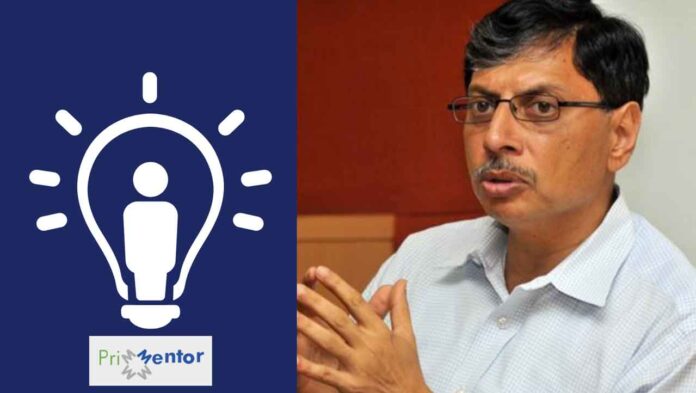When it comes to the IT industry, entrepreneurs face numerous challenges when starting and scaling their businesses. Phaneesh Murthy, an industry veteran with over three decades of experience, shares his insights on navigating this competitive landscape successfully. Drawing from his leadership roles at companies like Infosys and iGATE, as well as his current work mentoring entrepreneurs through his firm Primentor, Murthy emphasizes the importance of focus, differentiation, and outcome-based models for today’s IT services entrepreneurs.
The Need for Specialization and Focus
One key piece of advice Murthy offers entrepreneurs is to focus on specialization and niche areas. In an industry dominated by large, established players, he believes that smaller companies can gain a competitive edge by developing deep expertise in specific domains or technologies.
“Today’s advice would be focus, focus, focus, focus,” Murthy stresses. “And too often entrepreneurs think, ‘Oh, if I do this, then that’s it,’ but actually it has an opportunity cost. The moment you start doing what somebody else wants and you’re thinking, ‘For cash flow reasons, I’ll do it,’ etc. You’ve got to hold firm.”
By concentrating their efforts on a particular niche, entrepreneurs can differentiate themselves from generalist firms and establish a reputation for excellence in their chosen area. This specialization not only helps attract clients looking for specific expertise but also allows the company to develop a deep understanding of the unique challenges and opportunities within that domain.
Offering Differentiated Solutions
In addition to specialization, Murthy emphasizes the importance of offering differentiated solutions to clients. He believes that entrepreneurs must move beyond providing commoditized services and instead focus on delivering value through innovative, tailored offerings.
“If you think about it very objectively, the global services market, global technology IT market is about $3 trillion. Nobody can ever convince me that it’s done. So there’s always room. There’s always room,” Murthy explains. “The question is, how do you take on that role? What are the unique plays that you can bring about? What are the differentiated plays that you can bring about?”
IT services companies can differentiate themselves from the competition by developing unique solutions that address specific client pain points or leverage emerging technologies. This differentiation can be achieved through a combination of domain expertise, technological innovation, and a deep understanding of client needs.
Murthy points to the success of companies like EPAM Systems, which has become a darling of Wall Street by focusing on digital transformation and product engineering services. By carving out a niche in these high-growth areas and delivering differentiated solutions, EPAM has been able to create significant value for both clients and investors.
Embracing Outcome-Based Pricing Models
Another critical recommendation Murthy makes for IT services entrepreneurs is to adopt outcome-based pricing models. He believes that clients are increasingly looking for partners who are willing to share in the risks and rewards of their engagements rather than simply charging for time and materials.
“I believe that the outcome-based model will become more and more popular. And just because it’s more complex does not mean it shouldn’t be done,” Murthy argues. “It is more complex and it’s understanding and so on and so forth, but that does not mean you take the lazy way out.”
By aligning their incentives with those of their clients and tying fees to the achievement of specific business outcomes, IT services companies can demonstrate their commitment to delivering value. This approach not only helps build trust and credibility with clients but also encourages innovation and continuous improvement within the service provider organization.
Murthy cites the success of iGATE’s “iTOPS” (Integrated Technology and Operations) model, which he introduced during his tenure as CEO. This outcomes-based approach combined technology and business processes to deliver end-to-end solutions focused on achieving specific client objectives. By sharing the risks and rewards of these engagements, iGATE was able to differentiate itself from competitors and drive significant growth.
Mentoring the Next Generation of Entrepreneurs
In addition to his work as a consultant and board member, Phaneesh Murthy is actively involved in mentoring the next generation of IT services entrepreneurs through his firm, Primentor. Drawing on his extensive experience and track record of success, Murthy works closely with founders to help them refine their strategies, optimize their operations, and accelerate their growth.
“Primentor was built specifically to do that, to help companies refine their positioning in the marketplace, create the focus, and basically be a sounding board to the entrepreneur or to the founder,” Murthy explains. “Can I help them using my experience, and can I effectively build stronger teams? Can I create a more unique positioning? Can I create more focus, based on my knowledge of the market, and therefore put them on a different growth path and a different margin trajectory?”
By providing strategic guidance and mentorship, Murthy aims to help entrepreneurs navigate the challenges of building and scaling successful IT services businesses. He emphasizes the importance of developing a clear vision, assembling the right team, and staying focused on delivering client value.
Lessons for the Future
As the IT services industry continues to evolve and become increasingly competitive, Phaneesh Murthy’s advice for entrepreneurs remains as relevant as ever. By focusing on specialization, differentiation, and outcomes-based models, companies can position themselves for success in a crowded marketplace.
Murthy’s own journey, from his early days at Infosys to his leadership roles at iGATE and his current work with Primentor, serves as a testament to the power of these principles. By staying focused on delivering value to clients, embracing innovation, and continuously adapting to new challenges and opportunities, he has been able to build and transform successful organizations time and time again.
For entrepreneurs looking to make their mark in the IT services industry, Phaneesh Murthy’s advice offers a roadmap for success. By heeding his guidance and learning from his experiences, the next generation of leaders can chart their own paths to growth and differentiation in an increasingly dynamic and competitive landscape.
As Murthy himself puts it, “Is there still an opportunity? I think the answer is yes. But is there an opportunity to create tons of value both for yourself, your customers, and your employees? The answer is very much yes.”







